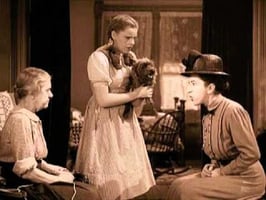95 years ago women earned the right to vote on a national level in the United States. On August 18,...
Every Little Thing She Does is Magic
Part of the joy in the Harry Potter novels is the concept of kids using their natural inquisitive natures and unrefined skills to defeat complicated evil. It’s the underdog motive, yes, but one where a simple knack for wizards’ chess or trading cards leads to victory. The sensation in these novels is that we all see ourselves in the characters of Harry, Ron and Hermione. They move full force in fear and passion without apology, and it works. They value the skill sets of each other, even when displayed in the most unassuming ways.
It’s a test for us.
Am I cognizant of passions in others’ lives? Do I see value in their interests? This isn’t a warm and fuzzy perspective alone (but in part), but a potential for competency tracking. The fact that someone is a nut for pottery may not translate into a skill to use at work, but the traits of someone doing it might. Think of the patience in the methodology. Think of the fine motor skills for the detail work on each piece. Think of the focus required to see a finished product from a lump of clay while using your foot to spin the wheel. Lots to manage.
There are ways to tie in those passions to the work at hand even if it’s not the specific task to complete while at work. The educational psychology of connecting new skills and patterns of work output to existing knowledge in similar habits or hobbies is brilliant. The work is to build bridges and to add to the files already being stored in the brain. This type of learning should be an HR practitioner’s dream to setup. It makes training and development opportunities more engaged and more successful.
Start by listening to staff. As they share hobbies and interests, think about translating that into useful work-related opportunities. If you’ve not had a conversation where you let an employee know that his/her skills in a hobby translate, try it. Often, that employee laughs in mild disbelief at first, but once you help explain the translation, the enthusiasm bubbles up.
Critical thought is an area of difficulty for many. We desire it in the workplace, but often have no time to cultivate it. By making connections to existing behaviors and concepts, it challenges mental processes of connection in other areas. A person will look more holistically at what he/she is about and how that works in more than one area of life. This leads to more critical thinking.
Work with managers to listen better. Have them be students of their staff. A good coach works to get the most out of the team. Knowing what each has to offer is of utmost importance. Encourage managers to dig a bit and enjoy the cultural impact such discovery will have.
Each talent possessed can and does overlap into usefulness in other areas. Upon victory early on, Hermione explained her skills by saying, “Books and Cleverness. There are more important things. Friendship and bravery.” She used her skills to open a door to deeper, lasting skills and attitudes. We can encourage the same. Help your staff to rise – Wingardium Leviosa!




Blog comments